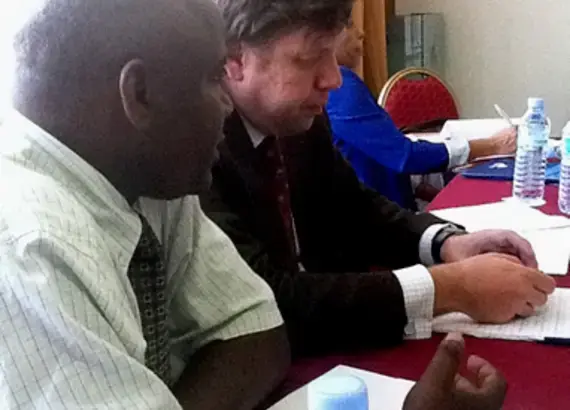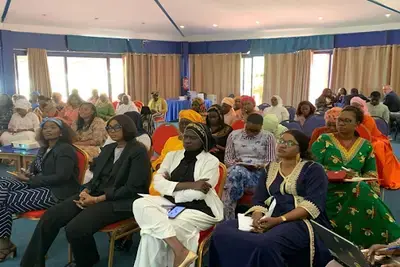
Success Story
Political Parties and CSOs Use Lessons Learned to Prepare for Angola Elections
Angolans will go to the polls on Aug. 31 for a historic election, the third in the country’s history and the first presidential election since a civil war ended in 2002.
Despite this significance, most Angolans are not fully informed of their rights as voters and many are unaware of recent changes to election laws, such as expansion of term limits and changes in voting procedures. In addition, the elections will take place amid growing violence against opposition supporters and a wave of student-led activism against wealth disparities.
To support election preparations, NDI brought together approximately 60 representatives from political parties, civil society, academia and government for two days of meetings in the Angolan capital of Luanda in June to talk about how to make the upcoming elections credible and transparent.
The event was sponsored by the Public Affairs Section of the U.S. Embassy in Luanda and the U.S. Agency for International Development.
One focus was on the role of international and regional principles, such as the Declaration of Principles for International Election Observation signed at the United Nations and the Southern Africa Development Community (SADC) Principles and Guidelines Governing Democratic Elections in promoting free, fair and transparent elections.
The Honorable Nora Schimming-Chase, former member of the Namibian parliament and SADC’s Parliamentary Forum, and Brazão Mazula, former chair of the Mozambican Electoral Commission, compared examples of how these guidelines helped promote free and fair elections in other Southern African countries and highlighted lessons learned that could be applied to Angola, such as closer collaboration with civil society groups on voter education outreach.
In addition, Richard Klein, NDI’s senior advisor for electoral processes, discussed the role that nonpartisan election observers play in building public confidence in elections and mitigating the possibility of violence.
Inglês Pinto, outgoing chairman of the Angolan Bar Association, led a discussion on recent changes in Angola since its parliament approved a wide reform of the elections law last December. “A free and transparent electoral process in Angola is a vital instrument for the consolidation of peace, national reconciliation and the establishment of a democratic and law-abiding state,” Pinto said.
On the second day of the conference, participants reviewed recommendations from domestic and international election observation missions to Angola’s 2008 parliamentary elections. Although the election results were accepted by all contending parties, some observers said that political and logistical challenges inhibited voter turnout. Participants discussed the recommendations and how they have been addressed ahead of this year’s polls. Moderators of the discussion encouraged them to make a commitment to democratic elections, identifying ways that each of the participating groups could strengthen transparency and fairness in the electoral process.
Read more:
Published Aug. 30, 2012



